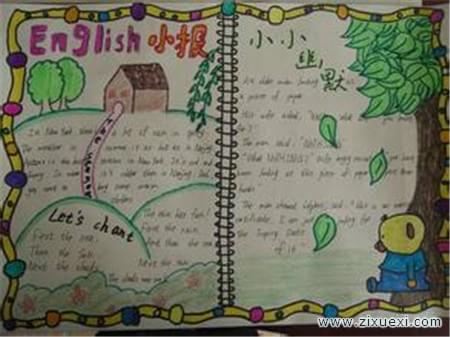英语手抄报:南辕北辙
Going South by Driving the Chariot North
Once a man wanted to go to the south, but his carriage was heading north. A passer-by asked him: 'If you are going to the south, why is your chariot heading north? ' The man answered, 'My horse is good at running, my driver is highly skilled at driving a carriage, and I have enough money. ' The man didn't consider that the direction might be wrong; the better his conditions were, the further he was away from his destination.
译文
从前有个人要到南方去,他坐的车子却向北方行驶。过路人说:“你去南方,车子怎么向北行驶呢?”他回答说:“我的马很能跑路,我的车夫驾车的技术也很高明,加上我又带了充足的路费。”这个人没有考虑到,方向弄反了,他的条件越好,离他要去的地方就越远。
寓意
后来人们就把这个故事概括为“南辕北辙”,比喻一个人的行为和他的目的正好相反。
The idiom derived from this story indicates that one's action was the opposite effect to one's intention.

最受用户喜爱的英语手抄报:
和英语手抄报:南辕北辙相关的手抄报:
- 上一篇:英语手抄报:叶公好龙
- 下一篇:英语手抄报:骄者必败

 不做有才华的穷人
不做有才华的穷人 永远别放弃梦想
永远别放弃梦想 不能避免逆境
不能避免逆境 英语手抄报图片
英语手抄报图片 初中英语手抄报
初中英语手抄报 The Small White Envelope
The Small White Envelope A Promise Kept
A Promise Kept 天堂里的红衣服
天堂里的红衣服 你爱我什么
你爱我什么 男人的哭泣方式
男人的哭泣方式 The Scars of Love
The Scars of Love We will see what happens
We will see what happens Magic Carpet
Magic Carpet Honesty
Honesty 学期总结
学期总结 英语手抄报;名人名言
英语手抄报;名人名言 英语谚语
英语谚语 中国的历史
中国的历史 一只眼睛的母鹿
一只眼睛的母鹿 伟大的中华民族
伟大的中华民族